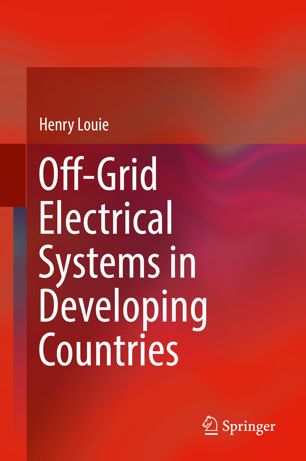

Most ebook files are in PDF format, so you can easily read them using various software such as Foxit Reader or directly on the Google Chrome browser.
Some ebook files are released by publishers in other formats such as .awz, .mobi, .epub, .fb2, etc. You may need to install specific software to read these formats on mobile/PC, such as Calibre.
Please read the tutorial at this link. https://ebooknice.com/page/post?id=faq
We offer FREE conversion to the popular formats you request; however, this may take some time. Therefore, right after payment, please email us, and we will try to provide the service as quickly as possible.
For some exceptional file formats or broken links (if any), please refrain from opening any disputes. Instead, email us first, and we will try to assist within a maximum of 6 hours.
EbookNice Team

Status:
Available4.8
40 reviewsThis book provides students and practicing engineers with a comprehensive guide to off-grid electrification: from microgrids and energy kiosks to solar home systems and solar lanterns. As the off-grid electrification industry grows, universities are starting and expanding courses and programs in humanitarian engineering and appropriate technology. However, there is no textbook that serves this growing market. This book fills that gap by providing a technical foundation of off-grid electrical systems, putting into context the technical aspects for developing countries, and discussing best practices by utilizing real-world data.
Chapters expertly integrate the technical aspects of off-grid systems with lessons learned from industry-practitioners taking a pragmatic, data-driven perspective. A variety of off-grid systems and technologies are discussed, including solar, wind, hydro, generator sets, biomass systems, battery storage and converters. Realistic examples, case studies and practical considerations from actual systems highlight the interaction of off-grid systems with the economic, environmental, social and broader development aspects of rural electrification. Whole chapters are dedicated to the operation and control of mini-grids, load and resource estimation, and design of off-grid systems.Special topics focused on electricity access in developing countries are included, such as energy use in rural communities, technical and economic considerations of grid extension, electricity theft, metering, and best practices devoted to common problems.
Each chapter is instructor friendly and contains illustrative examples and problems that reinforce key concepts. Complex, open-ended design problems throughout the book challenge the reader to think critically and deeply. The book is appropriate for use in advanced undergraduate and graduate courses related to electrical and energy engineering, humanitarian engineering, and appropriate technology.